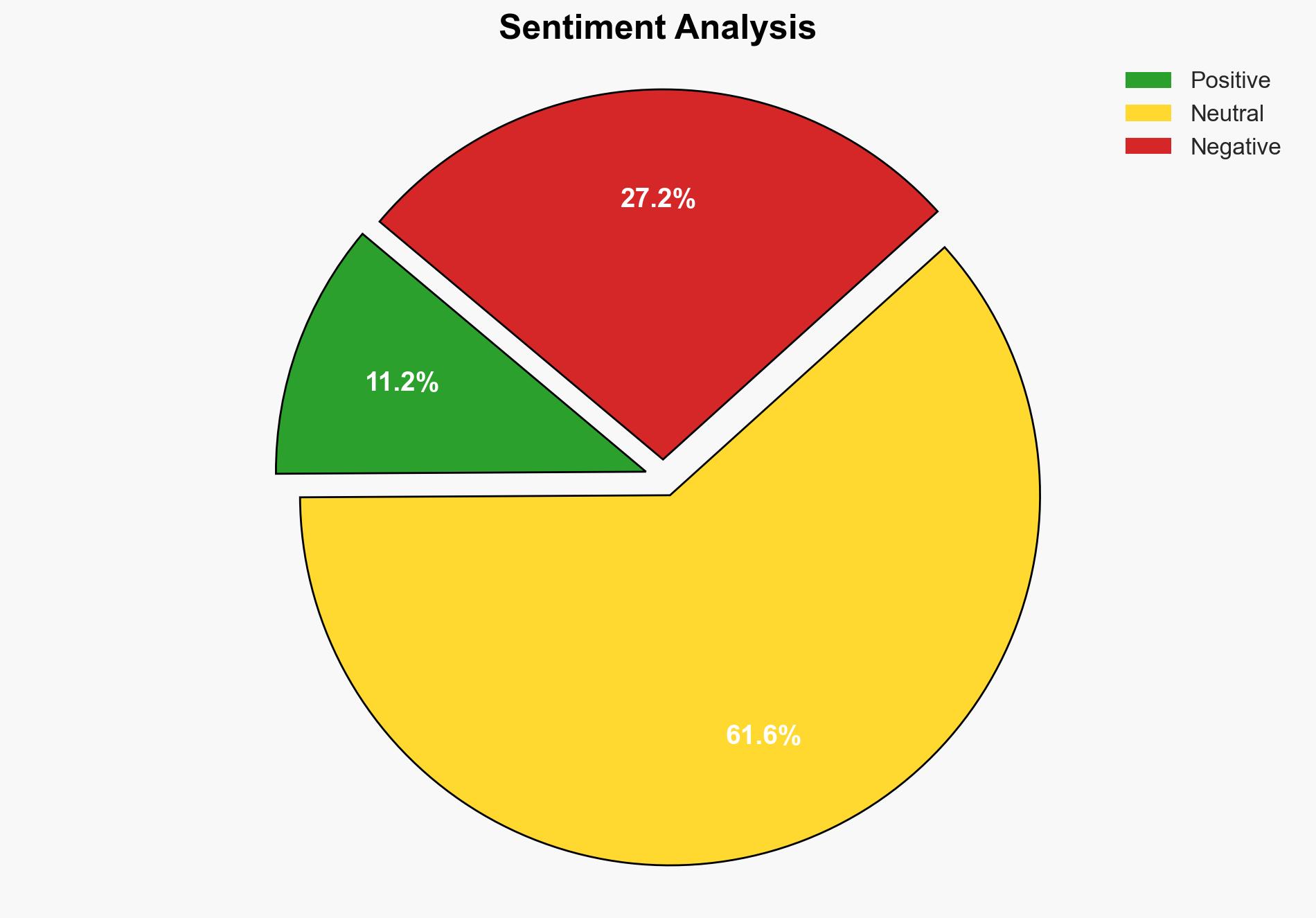Authorities Seize 1842 Devices in Africas Cybercrime Crackdown – Infosecurity Magazine
Published on: 2025-03-24
Intelligence Report: Authorities Seize 1842 Devices in Africa’s Cybercrime Crackdown – Infosecurity Magazine
1. BLUF (Bottom Line Up Front)
A coordinated international operation, dubbed “Operation Red Card,” led to the seizure of 1842 electronic devices and the arrest of multiple suspects across several African countries, including Nigeria, Rwanda, South Africa, and Zambia. This operation targeted cyber-enabled fraud and scams, dismantling significant networks involved in mobile banking fraud, investment scams, and malicious messaging schemes. The operation underscores the effectiveness of international cooperation in combating cybercrime, with significant assets recovered and key suspects apprehended.
2. Detailed Analysis
The following structured analytic techniques have been applied for this analysis:
General Analysis
The operation focused on dismantling cybercrime networks that defraud victims through various schemes, including mobile banking fraud and investment scams. In Nigeria, authorities arrested suspects involved in fraudulent investment schemes and online casinos. The investigation revealed the use of digital assets to obscure financial trails, with signs of human trafficking as individuals were coerced into participating in scams. In Rwanda, suspects orchestrated social engineering scams, posing as telecommunications employees to extract sensitive information. South African authorities exposed a sophisticated SIM box fraud scheme, while in Zambia, law enforcement tackled malware attacks and phishing schemes.
3. Implications and Strategic Risks
The operation highlights the pervasive nature of cybercrime and its potential to destabilize regional economies and national security. The use of digital assets and sophisticated technology poses significant challenges for law enforcement. The involvement of international syndicates and the coercion of individuals into criminal activities suggest a complex network that transcends borders, requiring continuous international cooperation and intelligence sharing.
4. Recommendations and Outlook
Recommendations:
- Enhance international collaboration and intelligence sharing to combat transnational cybercrime effectively.
- Invest in advanced technological tools and training for law enforcement to detect and prevent cyber threats.
- Implement stricter regulations on digital assets to prevent their misuse in obscuring financial trails.
Outlook:
Best-case scenario: Continued international cooperation leads to the dismantling of major cybercrime networks, significantly reducing cyber-enabled fraud in the region.
Worst-case scenario: Cybercriminals adapt to law enforcement tactics, leading to more sophisticated and harder-to-detect schemes.
Most likely outcome: Incremental progress in combating cybercrime with periodic successes in major operations, but ongoing challenges due to the evolving nature of cyber threats.
5. Key Individuals and Entities
The report mentions significant individuals and organizations involved in the operation without providing specific roles or affiliations. Key figures include Neal Jetton, who commented on the operation’s success and its implications for international cooperation against cybercrime.





